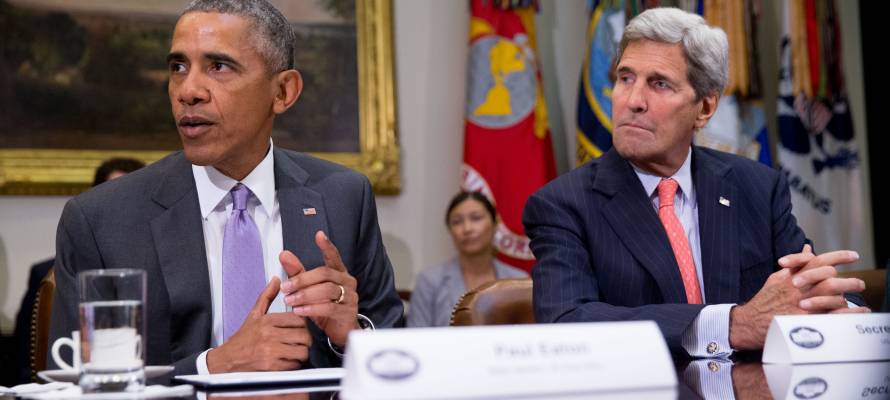One expert suggested that “when the United States said it was going to impose new sanctions and then pulled back, it sent a very bad signal. It is especially damaging to US credibility and leverage.”
Unless the United States clamps down on Iran, it is going to give the Islamic Republic more leeway to keep pushing the boundaries of what is acceptable in relation to its nuclear program, said Institute for National Security Studies research fellow Azriel Bermant on Sunday.
He was responding to the news that the Obama administration has decided to suspend its decision to impose new sanctions on the Islamic Republic in the wake of stepped-up ballistic-missile testing.
Bermant, a specialist in US policy in the Middle East and nuclear weapons proliferation, said, “The Iranians know that if they have gotten this far with their negotiating partners to the Joint Comprehensive Plan of Action, those world powers are not going to let the agreement collapse.”
Furthermore, he said, “When the United States said it was going to impose new sanctions and then pulled back, it sent a very bad signal. It is especially damaging to US credibility and leverage, considering the fact that the Iranian Revolutionary Guard Corps fired unguided rockets very close to the American aircraft carrier the USS Harry S. Truman last week, while conducting a live-fire exercise.”
Bermant explained why he thinks the US suddenly backtracked on the imposition of new sanctions.
“The Obama administration probably fears that putting too much pressure on Iran now will undermine its moderate wing and harm President Hassan Rouhani’s standing in the upcoming parliamentary elections.”
Bermant’s concerns echo those of counterterror expert Matthew Levitt, whose analysis in Friday’sWall Street Journal was even more critical of Washington’s behavior.
The “backpedaling” on a new series of US-imposed sanctions on Iran over its ballistic missile program almost as soon as they were announced “effectively invit[es] Tehran to test the boundaries of what violations it can get away with,” wrote Levitt, director of the Stein program on counterterrorism and intelligence at the Washington Institute for Near East Policy.
Assessing the tug of war surrounding the Islamic Republic’s continued muscle-flexing, Levitt called the current situation “worrisome.”
The planned sanctions were a last-straw response to Iran’s testing of the Emad missile in October, which, said Levitt, “a United Nations panel concluded in December… was capable of carrying a nuclear warhead, a violation of UN Security Council Resolution 1929… The measures were intended to show Washington’s willingness to hold Tehran accountable for illicit conduct.”
However, explained, Levitt,
To Iran, it didn’t matter that the measures did not undermine the major sanctions relief it stands to gain through the nuclear deal or that they were limited to a small number of individuals and companies. A spokesman for Iran’s foreign ministry called the sanctions “unilateral, arbitrary and illegal.” President Hassan Rouhani denounced them and instructed his defense minister to expedite the ballistic missile program.
Iran has insisted that it will not accept restrictions on its missile program. The text of the nuclear agreement enshrines this position: “Iran has stated that if sanctions are reinstated in whole or in part, Iran will treat that as grounds to cease performing its commitments under the JCPOA in whole or in part.
The INSS’ Bermant said he didn’t believe Iran would actually walk away from the JCPOA, even if the US were to impose the new sanctions – because of their limited scope. “Don’t forget that a whole other set of sanctions would be removed,” he said.
Levitt concluded his Wall Street Journal piece by reiterating what both he and Bermant see as the key danger in American “waffling”:
By backing off sanctions over Iran’s ballistic missile test – and fairly insignificant sanctions at that – the Obama administration has left the impression that, contrary to its repeated pledges, it may not enforce current sanctions or impose new ones should Tehran violate UN Security Council resolutions or the nuclear deal. Iran’s actions to date make clear that its leaders will interpret such dithering as weakness, and an invitation to further test the boundaries of their international obligations.
By: The Algemeiner
